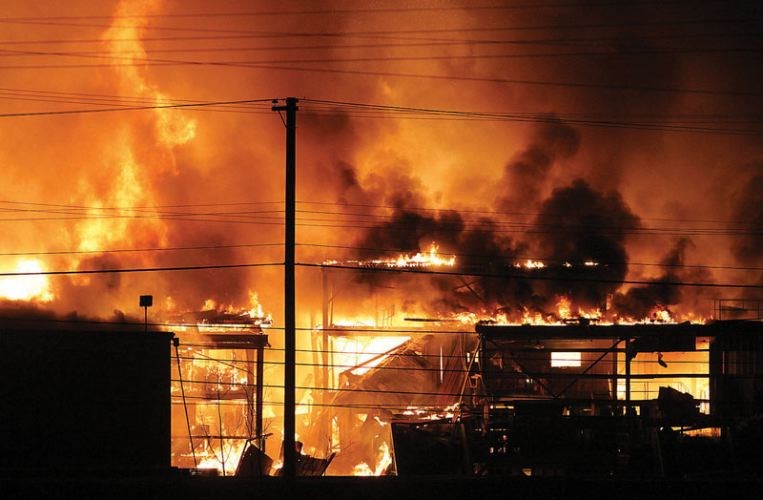The inquest into the fatal Lakeland Mills explosion was adjourned to Monday to give the mill's owner time to decide if its own investigation of the blast should be released to the coroner.
Coroner Lisa Lapointe agreed with coroner's counsel John Orr that the investigation may contain information that could be relevant to the inquest but acknowledged it's protected by client-solicitor privilege.
Lapointe made her decision Friday morning after hearing a round of submissions on the matter from the lawyers participating in the inquest and a recording of a conversation counsel had with the lead investigator on Wednesday night.
The work was performed by U.S.-based CASE Forensics and the subsequent investigative material remains south of the border, which prevents the B.C. Coroners Service from using its power to seize the material, the inquest heard.
Orr described the investigation as "very significant" and urged Lakeland Mills to waive privilege and provide the information or allow the lead investigator to testify at the inquest. He said it would be "unconscionable" for Lakeland to withhold any information from the inquest for any reason.
United Steelworkers counsel John Rogers supported Orr, saying the material could prove crucial, but others were not so sure.
WorkSafe counsel Ben Parkin argued the inquest already has that agency's own investigation into the blast and has heard testimony from its lead investigator, and doubted Lakeland's investigation will add anything.
It's common for businesses involved in such incidents to hire their own investigators for reasons related to insurance, the inquest also heard. Lakeland Mills is owned by the Sinclar Group, which also operates sawmills in Vanderhoof and Fort St. James.
Lakeland counsel Gavin Marshall said there is "no desire" by his client to withhold relevant information but contended the investigation for Lakeland's owners would make no difference to the jury's conclusions regarding the blast's time, place, the means of the deaths.
Lakeland supervisor Alan Little and large headrig operator Glenn Roche died from the extensive burns they suffered in the April 23, 2012 explosion that also injured 22 others in the sawmill at the time, many seriously.
Told by Lapointe that he has until Monday to let the inquest know, Marshall said he would need more time to review the material. Lapointe disagreed, noting the investigation results have been in Lakeland's hands for close to three years and has played a role in Marshall's questioning of witnesses.
Following Lapointe's decision, the inquest was adjourned with no witnesses called on Friday.
Testimony had originally been scheduled to end on Wednesday with jury deliberations on Thursday and Friday but the inquest quickly fell behind schedule. As of Friday morning, testimony was scheduled to end no sooner than Tuesday.
The jury must decide whether the deaths were natural or the result of either accident, suicide, homicide or undetermined. Homicide is defined as death due to injury intentionally inflicted by action of another person but in the context of an inquest is a neutral term that does not imply fault or blame.
The jury can also make recommendations to prevent similar events in the future.



